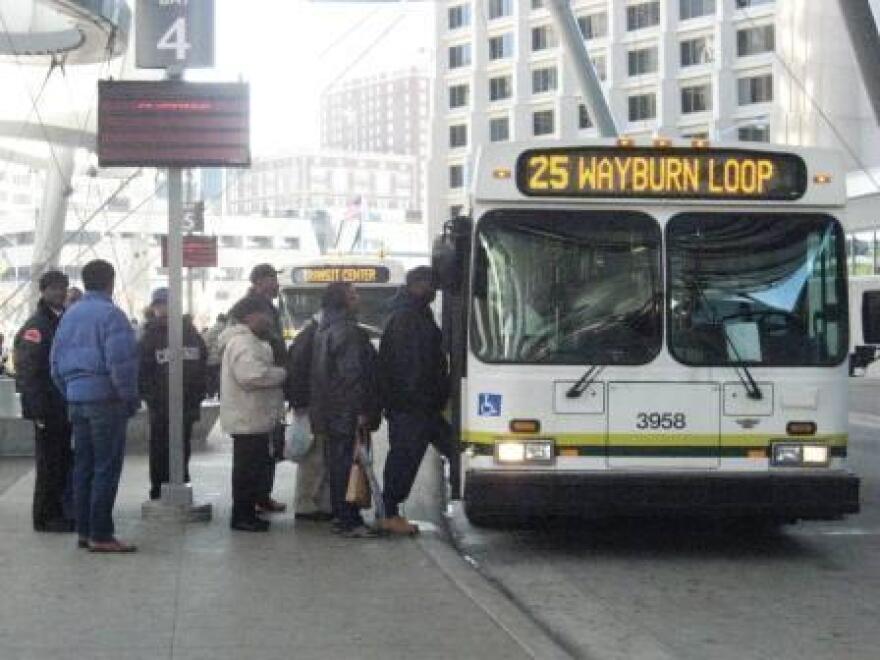A millage proposal to fund major transit improvements in Metro Detroit isn’t dead yet—but it’s very close.
That’s because the Southeast Michigan Regional Transit Authority couldn’t muster the votes to put the measure on the November ballot Thursday.
The millage would have raised about $3 billion (estimates vary) over 20 years. It would have helped fund a $4.6 billion master plan to upgrade Metro Detroit’s lackluster, fragmented transit systems.
But the board couldn’t put together enough votes, because of opposition from Oakland and Macomb county leaders.
It needed a super-majority of the nine board members, as well as at least one vote from each jurisdiction represented in the RTA, which also includes Wayne and Washtenaw counties, and the city of Detroit.
If the deal is to be salvaged for this year’s ballot, all those regional leaders have about a week left to hash out disagreements, and bring Oakland and Macomb on board in time for another vote.
How likely is that? “I really think it’s a possibility,” said Oakland RTA board member Tim Soave. “Am I willing to bet the house on it? No.”
“The current regional master transit plan abandons more than half a million Oakland County residents in 40 of our communities, leaving them with little or no transit services but demanding they pay more than $700 million in taxes over 20 years,” Oakland County Executive L. Brooks Patterson said in a statement following the vote. “I support regional transit, but I won’t be stampeded into a bad deal.”
All ballot questions need to be certified and submitted to county clerks by mid-August to make the November ballot.
If it doesn’t go on this year’s ballot, it likely sets any major transit upgrades back at least four years, RTA board chair Paul Hillegonds told the meeting. The millage must be on a general election ballot, and in two years it would compete with a millage renewal for the region’s SMART bus system.
The result left a crowd of transit supporters--many wearing stickers that said “Let us vote!”—feeling angry and frustrated.
The plan’s opponents are “making decisions off of something very petty,” said John Waterman, executive director of PEAC, a group that helps people with disabilities access different forms of transit.
“I mean we’re talking ‘do I get this, do I get that’…for individuals [with disabilities] who have no access. And any plan would be better than no plan.”






